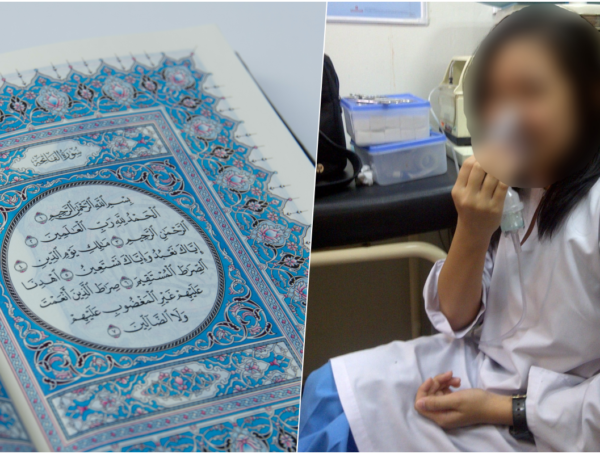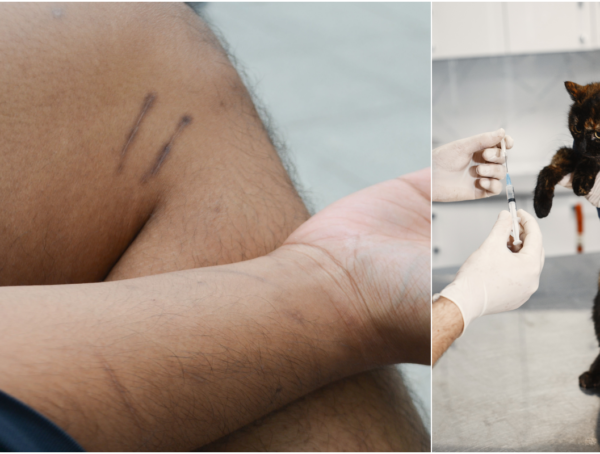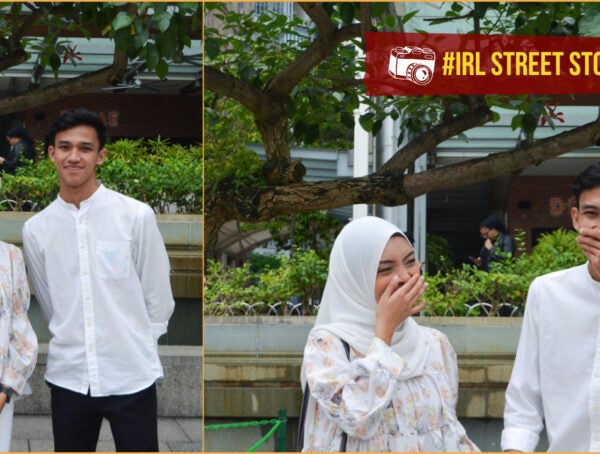Disclaimer: In Real Life is a platform for everyday people to share their experiences and voices. All articles are personal stories and do not necessarily echo In Real Life’s sentiments.
I am a Malaysian who spent his mid-20s as a Private Military Contractor fighting in the Middle East. I was born to Malaysian parents in the early 1980s in PPUM. My family got jobs overseas that paid better and promised a better life, so we emigrated as a family.
I did well enough academically that I applied to one of the top schools in the world for my chosen industry. I got there, started my studies, and then disaster struck: Economic downturns wiped out the investments and savings of my family, and suddenly, there was no money to pay my tuition.

I thought it was better to earn money than owe a government or some bank a loan with suicidal interest rates that I would spend my life paying back. So I went looking for work, anything that could pay the debt. A coursemate in Europe sent me a job offer.
He spent his time in Bosnia and Herzegovina’s wars in the early to mid-1990s and said I’d get the money I needed in about two years. The job was paying his fees in full. I didn’t have other alternatives. I signed up.
That two years included Basic Training. I won’t go into detail too much, but Basic Training taught me how to be a soldier: Move, shoot, take cover and essentially survive. It also taught us that regular militaries would look down on us as the scum of the earth and avoid them as much as possible.
I did what every soldier does, too: I got into combat. I fought for my life. I did kill the enemy in war. It’s hard to keep things in perspective when bullets come your way.
This is my story.
War for Education: A Degree in Irony.

The money I earned would pay for my university degree. I got through it all; I got my money and my life, but I also had to pay in other ways. I’m still dealing with all the mental damage and trauma from the things I witnessed and horrifying experiences in the armpits of the Middle East. Ironic really.
I’m not going to talk about what I did and had to do to survive and win. There were gunfights and ambushes, near-misses and close scrapes. It was hell on the body, the soul, and the mind. I have a therapist who sees a therapist because of me.
These days? I cope. I don’t reach for the Xanax as often nor the vodka bottle anymore. But my hands still shake on occasion. I still get nightmares. I still wake up screaming in a cold sweat once in a while. I’ve been away from war for so long, but I still remember it. Vividly. I remember so much of it, but what I remember would surprise people.

The price I paid and the lessons learned
What I took home from my few years out there was enough money to pay for my degree and a lot of other things that I did not plan on, that I was not trained to handle, that I’m still coping with today and will be for the rest of my life.
I look back on that period of my life, and I KNOW how lucky I am to be here, physically, in one piece and mentally… Mostly in one piece, or peace. I’m still not sure.
War changes your perspective

For me, the most significant shifts in perspective were about death, injury, and taxes. I’m not scared of death anymore when it’s my time to die, whether it’s old age or pinned under the wheels of a Milo Truck.
Injury, being crippled and unable to protect those I love and myself. Those are the things that scare me now. I now live my life working to avoid those things. I don’t stress about bills, political correctness, or administrative paperwork. I get incredibly impatient standing in line for anything.
War is incomprehensible
War is something that changes you in every way imaginable. I’m not physically, mentally, or emotionally the same person I was before. No book, movie, or game accurately tells you what it’s like. There is only the experience of it, and I’m not a religious man, but I pray you never experience it.
Civilians are not veterans
Veterans have seen war. Civilians have not. Civilians “compartmentalise” war. From the politicians to the average guy on the street, they all compartmentalise it and treat it as almost an abstract concept. My family and friends discuss war, as a topic, as a “current event.” They do not understand what they are talking about.
Veterans don’t talk to civilians about these things because we don’t know HOW to talk about them. At best, those who have tried get blank stares from friends and family. Worst? We lose that special human connection, which feels like losing our connection to humanity in many ways.
When friends started ghosting me, I started hearing what some people were saying about me behind my back; I realised that this could cost me more than war ever did. I don’t talk about it to anyone but my therapist. At least he doesn’t judge or condemn me.

This is from the movie starship troopers (1997)
We miss our family
Some fighting has wives, children, families, and friends they go home to between deployments. But when we’re away from the people we fight with, we miss them too. Being at the front, prosecuting a war with equally brave or crazy individuals, will forge familial bonds that only death can break.
Our shared experiences are like nothing else out there. We understand each other because of those experiences we can’t discuss or share with civilians. We can go years without speaking, but it’s like we saw each other yesterday when we did meet. The bond is as strong as ever. I’ve dropped everything to fly halfway around the world for these people because they would do the same for me.
Why Veterans Return to War
When we lose that special connection to our civilian family and friends, that’s when it happens: We “re-up” (reenlist). We return to the lip of the cauldron and jump into the fires of war. It’s where we are known and accepted, and it is understood that we are trying to kill the enemy, and they us.
What I don’t miss about War
I don’t miss the things I did to survive and win, nor do I regret what others did to survive and win either. We’re still here. Yet it is those same people who did all those unspeakable things alongside me, and quite possibly with me, that I miss the most about war.
I know I have not told you, any of you, what IT is, what EXACTLY it is I have done and did. I don’t know how to talk about it, how to share those experiences, how I can make you understand, or have any compassion for me.

What do I do today?
I did my time, and I got out. I graduated, got married, and did my best to continue living. I live. With myself. With what I have done. I came home to Malaysia and struggled with things I have discussed and described.
I found myself a therapist. I talked to him once a week and medication—lots of different coloured tablets at first. Now just one or two, when things get nasty in the night.
I never got to have a career in my chosen field. Instead, I wound up working in computing and programming. I do some content creation work in video production, acting and writing fiction.
The best tithing is that I met someone, we dated and then finally got married. She is a lovely woman; I’m still in love with her head over heels. She knows me, my past. I never hid it from her. She’s patient, compassionate and very understanding.
I guess I can say that I’ve come home from my wars and found a place to call home, with a family of my own, and I’m happy.
Know anyone with an interesting story to share? Drop us an email at ym.efillaerni@olleh, and we may feature the story!
For more stories like this, read:
This M’sian Girl Traveled India For 45 Days & Cycled The Himalayas For 2 Weeks – Solo!
You might also like
More from Real People
‘A RM100 fee cost a company 5 years of revenue’ shares M’sian
This story is about a Malaysian who learned that bureaucracy can be defeated simply by not arguing with it.A billing …
‘I quiet-quit, upskilled, and tripled my salary,’ shares M’sian engineer
This story is about a Malaysian who learned that loyalty without leverage leads nowhere in the corporate world.After years of …
‘I did everything right, and it still wasn’t enough’ shares M’sian graduate
This story is about a Malaysian graduate navigating big dreams in a job market where a degree no longer guarantees …


















